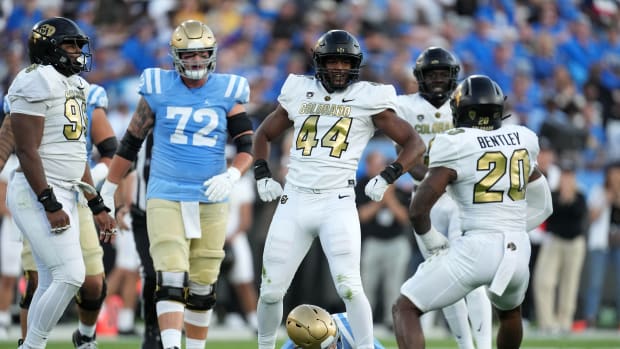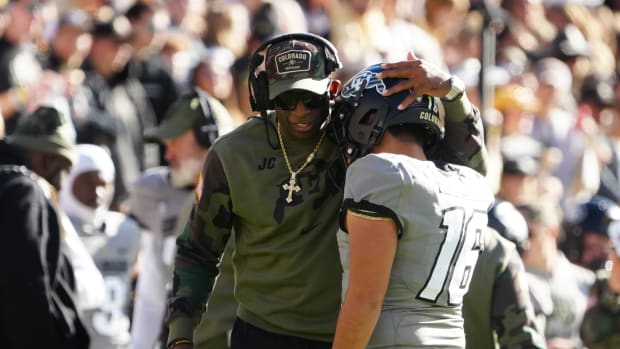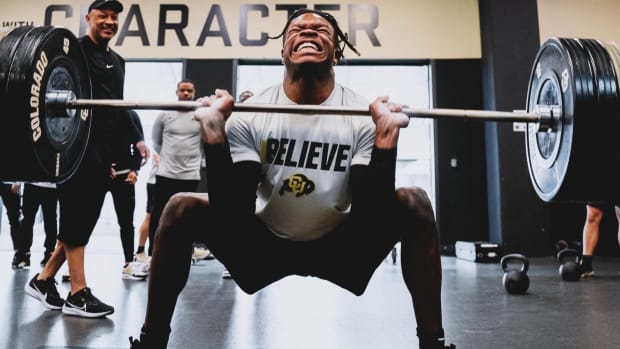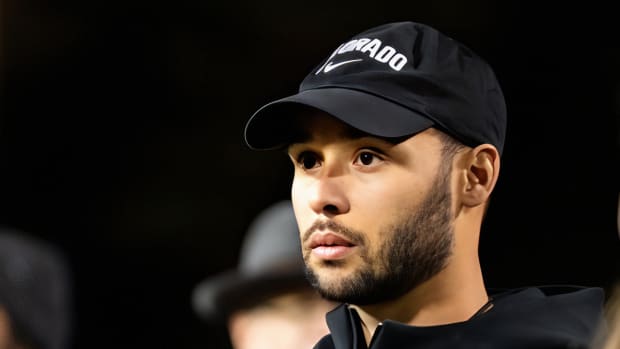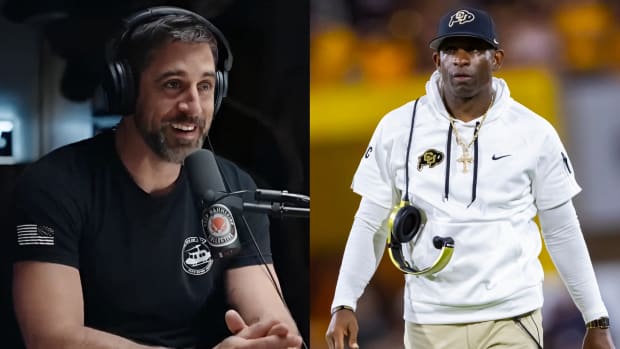Deion Sanders' setbacks will result in a major comeback at Colorado

Sifting through the pieces of a gut-wrenching loss in the season’s home finale against No. 21 Arizona, my mind keeps wandering to the Pac 12 Network’s pregame show.
The program’s host, Ashley Adamson, had asked co-horts Shane Vereen and Nick Aliotti a question. The Denver native wondered about the Buffs season. Success or failure? Aliotti, a veteran coach, was pretty emphatic. Failure. The long-time Oregon assistant rattled off well-known problems: more offensive balance, less penalties, and better line play. Vereen talked about wins.
To this point, four versus one a year ago. Success. However, inside the locker room? The former NFL running back and Super Bowl champion with New England believes the Buffs are disappointed and expected more after a torrid start. Remember, Colorado was ranked as high as No. 18 after beating Nebraska.
The articulate Vereen’s thoughts about how the Buffs, inside that locker room, will respond down the stretch and into next season? If what the former Cal Bear running back says is true? How will the coaching staff and young men carrying the Colorado pride and tradition forward, learn from this inaugural campaign?
Just one man’s opinion but it would be a surprise if the Buffs don’t respond well. As a long-time Denver sports media guy, your scribe knew Deion Sanders from a far. Three things always stood out: Great player. Articulate. Flashy.
Since being hired in December, the Florida native’s other attributes have really resonated. In an earlier column, I wrote about the similarities between the first-year coach and legendary Hall of Fame coach Bill McCartney.
I’m blessed to spend time with the 83-year-old legend these days. I share with him what was written: Each coach can recruit effectively, has deep faith as a foundation and believes mentoring young men to success spans far beyond the gridiron. A terrific trio. Coach Mac smiles broadly at the assessment and is a big fan of CU’s current leader.
Another question zips through my mind. Which McCartney season from seven years of having a front-row seat, flying on the team plane and unfettered access has similar characteristics? None came immediately to mind from 1988-2004 but research steered your correspondent toward the 1993 season.
The Buffs began the campaign ranked 11th, beating Texas and 24-ranked Baylor at Folsom Field. I hosted McCartney’s television show and was the sideline reporter for KCNC-TV, which back then televised Buff games the national networks did not covet.
After starting 2-0, Colorado lost a hard-fought night game at No. 20 Stanford. To make matters worse, one of the buses transporting us to the airport after a disappointing evening was involved in a minor accident delaying departure. A long and miserable night.
Next week? The talented and rowdy Miami Hurricanes, remember the pre-game scuffle, came into Boulder and won, 35-29. Two consecutive losses. Ouch. However, the Buffs won six of their last eight games.
Back-to-back disappointments in a tie at K-State and home loss to Nebraska preceded victories over Okie State, Kansas and Iowa State to close the regular campaign. At the Aloha Bowl (nice work assignment) Colorado beat Fresno State and its future Super Bowl quarterback Trent Dilfer to finish 8-3-1. Further digging into the 1993 roster reveals a wealth of talent. Many of whom would play and excel in the NFL for years.
The 1994 edition? McCartney’s final team, led by quarterback Kordell Stewart, bounced back and went 11-1. So many great players. A bitter loss at Nebraska the only blemish to a stellar season culminating with a Fiesta Bowl shellacking of Lou Holtz and the Fighting Irish, 41-24.
Talent wise, the Buffs might have been the nation’s best team. It learned from disappointment. Inquiring minds will watch it all unfold next season. I’m not a betting man but if required to wager?
My money’s on Colorado improving from the setbacks. The 2023 season has brought unprecedented success in revenue, national appeal and boosterism.
Will the Buffs, the coach’s words, “Learn to win?” Ultimately, that’s the true measure of success amid CU’s prime time quest toward a return to college football relevancy.



